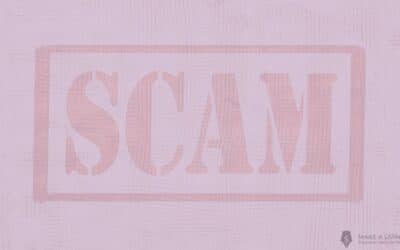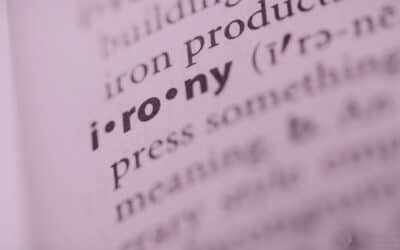Do you love writing technical content that helps regular people understand complex or niche topics? Then you may want to look into how to become a technical writer.
Technical writing requires you to be able to break down big ideas into something that’s easy to comprehend and apply.
While that might sound easy, it’s not always the case.
Think of the last time you gave someone in your life instructions and they completely misunderstood what you said or meant.
Wasn’t that frustrating?
As a technical writer, your job is to make sure your instructions are able to be understood, leaving little room for error. That’s why it can be a difficult job for a lot of people (even writers!).
In order to be successful as a technical writer, you’ll require intimate knowledge of the subject you’re writing about. For example, if you’re covering robotics, you’ll need to know what all the parts are called, how it works, and all the technical lingo that goes along with that.
If you’re wondering how to become a technical writer, if you need a degree for it, and how you can get started then keep reading—we’ll break down all of this and more.

What is Technical Writing?
Technical writing is used in technical and occupational fields. Essentially, it’s any writing where you take technical know-how and translate it into manuals, instructions, or other specialized documents.
These can be for the general public or they can be for people specifically in an industry or company to use. For example, it could be instructions that anyone who buys a product might have to follow, or it could be instructions on how employees at a company manages their documentation labeling.
With the increased use of technology into our lives, there is an increased demand for technical writers. However, it has been around ever since humans started creating tools that took more than a few steps to complete.
As you can imagine, it’s not an easy thing to take a complex topic or idea and make it easily accessible for people.
While you don’t always have to make your writing easy to understand for everyone (since the intended audience isn’t always the general public), you need it to be understood by the people who are going to be reading what you’re writing.
Examples of Technical Writing
One common place you see technical writing is in software and technical manuals.
Think of how much you appreciate when instructions for something are clear and accurate. That’s the work of a technical writer.
With the increased use of technology across the world, technical writing has expanded as an industry.
It’s not always just for consumers, either. Sometimes technical writers will be required to write for other industry experts.
You might even be brought on to a company to write blogs that serve as tutorials for their customers. If you have an interest in business writing, tons of businesses need proposals, brochures, case studies, and white papers. All of which require intimate business knowledge to put together.
Skills Needed to Become a Technical Writer
If you have the ability to take complicated ideas and make them digestible and easy to understand, you will most likely succeed as a technical writer.
Yes, being able to write clear is important as well, but not as much as having the mind to understand complex ideas. Simply being a good writer will not make up for lack of knowledge about an industry or area.
Depending on your audience for what you write, you’ll need to be able to understand the lingo and technical terms you’re writing about. Using the wrong words to describe something will only confuse your audience and start to break down the trust they have with what you’ve written.
You won’t be able to write about certain softwares or technologies if you don’t understand what they are or how they work.
You will need to master the language of the industry you’re writing about along with being able to keep your writing clear.
Most writers cannot master all of these skills overnight, but it doesn’t mean you shouldn’t try to become a technical writer Instead, that should inspire you to get started and start to build your career sooner than later so you can build on these skills.
Do You Need a Degree to Be a Technical Writer?
While you don’t necessarily need a degree, you will need to have top-notch writing skills.
Technical writing is not just writing blogs or social media posts, where the stakes are lower. You could be writing things such as how to comply with laws or how to safely consume packaged food.
With that being said, having a degree in a related field or in writing itself can help get your foot in the door.
Above all, you will need a solid portfolio to get hired and start getting any kind of assignments, whether you want to get a job or go the freelance route.
How to Become a Technical Writer
With technology becoming a greater part of our every day lives, technical writing is a skill that is in high demand.
As the software we use becomes more and more complex, we desperately need guides that help us understand what it is and how we can use it.
Let’s dive in to how you can get your foot in this growing industry.
1. Pick a niche or industry
To get started as a technical writer, you’re going to have to decide on the area, industry, product, or niche you’re going to write about.
That’s because you cannot be a specialist in every topic out there, so you will need to pick the industry you’re going to learn about. It will be up to you how specific you choose to get.
For example, you could specialize in writing about project management software, but you could niche down to only writing tutorials and content for Notion.
You can always change your niche if you don’t particularly enjoy it, but it will take some time to master the thing you’re writing about and know how to accurately describe it.
2. Find writing work as a technical writer
Whether you choose to become a freelance writer or find a job as a technical writer, you’re going to have to start by putting together a portfolio of your work.
If you don’t have a portfolio of work, you’re going to need to spend the time to create some pieces.
Your portfolio can be published pieces or they can be pieces you create, but either way, you’ll need to showcase what your writing is like and your skills as a technical writer.
Once you have some pieces put together, your next steps will change whether you want to find a freelance technical writing job or want to be hired by a company.
If you want to be hired by a company, you’re going to need to hunt through job boards or get in touch with companies you want to work with. You’ll also need to create a resume and potentially work on cover letters.
If you want to become a freelance writer, you still might search through freelance job boards, but for the most part, you’re going to be hunting for clients and networking in your industry.
3. Ask yourself: Who could use your skills?
What companies that are already out there are creating manuals or tutorials in your niche?
The most important thing to ask yourself is who needs your skills.
Once you find out who could use your skills as a technical writer, you’ll be able to get in contact with them. Whether it’s through job postings you find online or you directly get in touch with someone at the company.
Keeping a running list of the companies in your niche will help you be able to find them once you’re ready to start gaining experience.
With a little persistence, you’ll be creating technical writing documents in no time.










